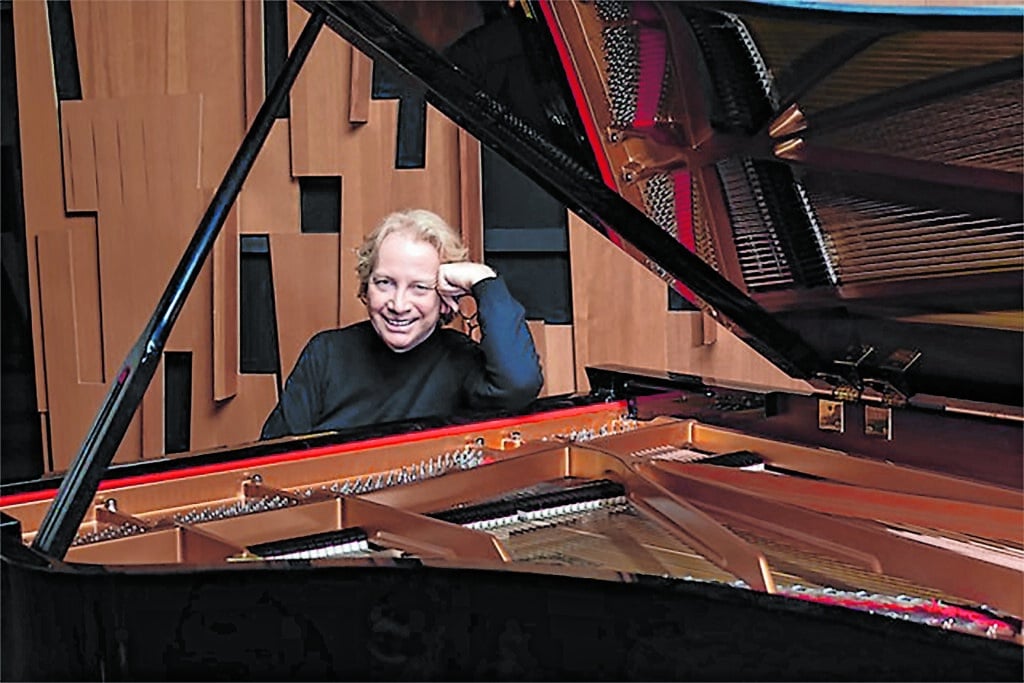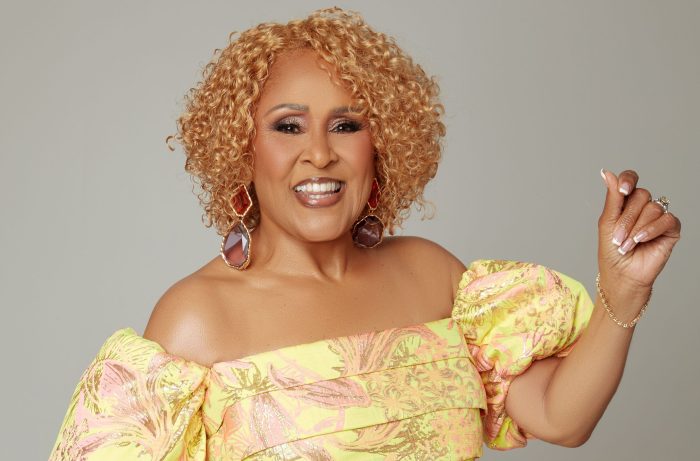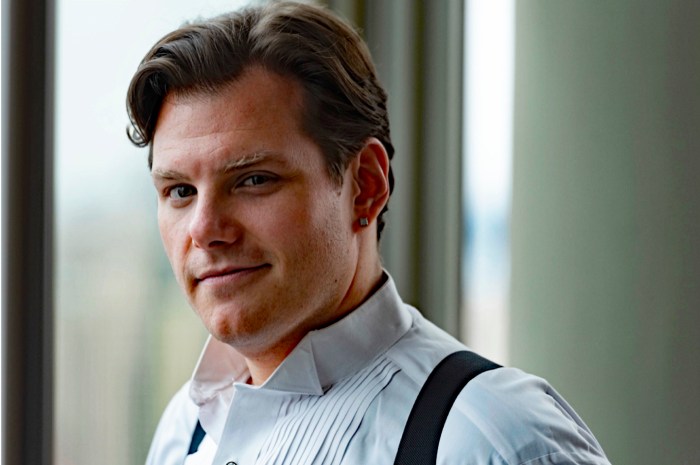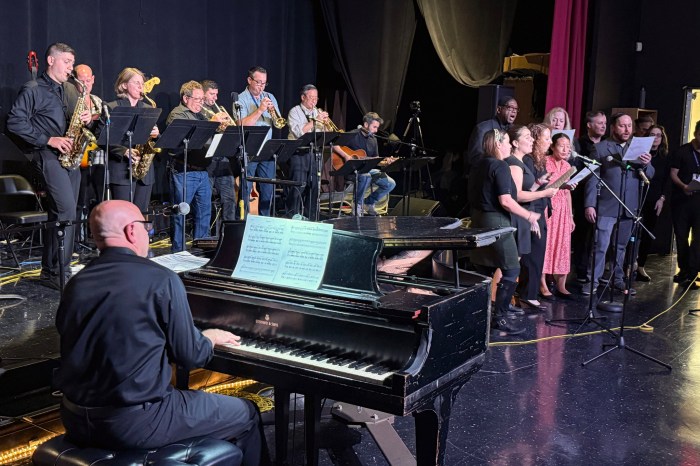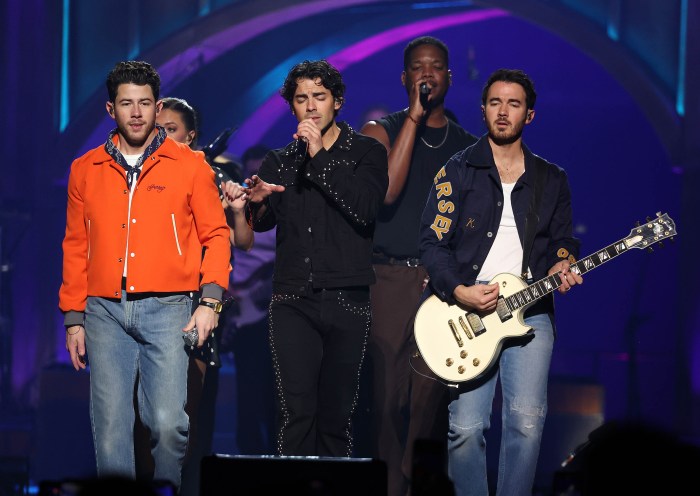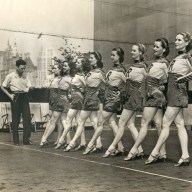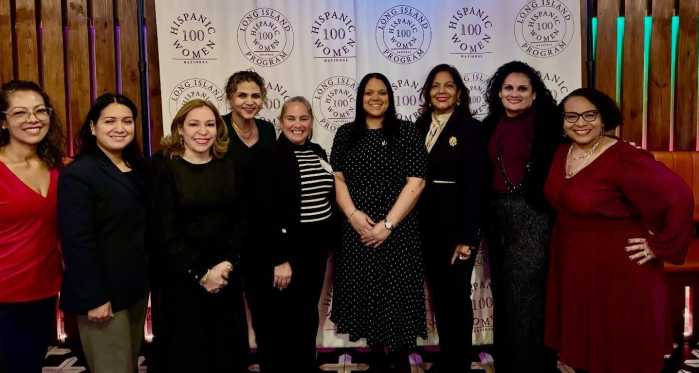At 25, Leonard Bernstein protégé John Bayless made his Carnegie Hall debut performing “Rhapsody in Blue.” At 54, a left-brain stroke immobilized his entire right side. Bayless’s magical “first act” disappeared. On Sunday, May 19, at 7 p.m. Landmark on Main Street in Port Washington will present Long Islander Stewart Schulman’s documentary Left Alone Rhapsody—The Musical Memoir of Pianist John Bayless in its Long Island premiere followed by a Q&A with Schulman and Bayless, and then a short concert by Bayless.
Schulman chronicles Bayless’ rise from four-year-old prodigy to international stardom, capturing his talent and his humanity in one film, as he pushes himself to recover and reinvent himself as a storyteller and entertainer who plays with his non-dominant left hand.
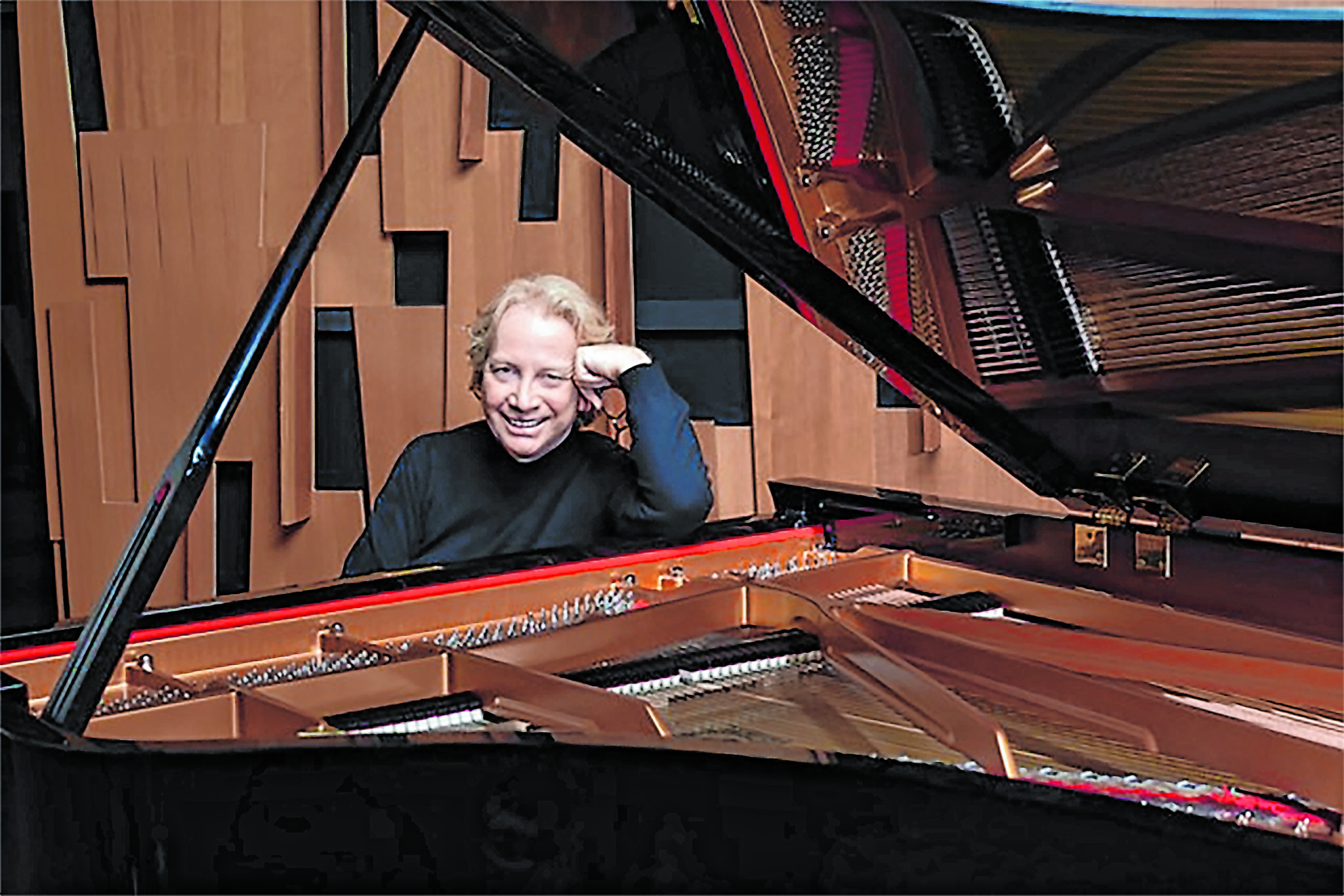
I had a chance to speak with Bayless last week about the documentary and his music.
Christy Hinko: Tell me about Schulman’s film.
John Bayless: It’s a documentary on my life and it traces the evolution of my career as a child prodigy, my coming to New York to attend Juilliard and my stroke in 2008. I did not want to play anymore after that happened. I have continued to play, but now only with my left hand. People say it sounds just as amazing. Stewart [Schulman] is amazing; everybody should have at least one friend like him, he believes in what I do and what I am capable of doing. He is supportive and doesn’t let up on me.
CH: How did you and Schulman meet?
JB: I met him decades ago, maybe in 1981. He was a graduate student at NYU film school and he needed a composer for his thesis film. He asked a mutual friend if he knew anyone. I had just debuted at Carnegie Hall. Life takes you to different places; I had a 35-year career playing all over the world. We stayed friends; we would get together occasionally. When his mother passed away, we reconnected and started talking about what I had been doing. He immediately said, “This is worth a documentary” and so began the journey.
CH: What would you say is your biggest challenge? Have you mastered your craft?
JB: There’s a quote I love that that is something like “Don’t define me by my disability; define me by my ability.” Music is just something that comes out of me; I hear music differently than others. I go to the essence of what the song is, what the pieces are about. As opposed to trying to be a virtuoso and show how terrific I am, what type of talent or technique I have, it does not matter. I only have five working fingers. I have to just keep playing; art never stops, it is constantly evolving. Creating is my mistress…(laughing)…or my mister.
CH: Tell me about your early days, learning piano as a kid?
JB: I grew up in a small town in Texas with a population of about 15,000 people. My mother was a musician; she championed me all my life. My father was incredibly generous. I was the youngest church organist in the state of Texas at one time, I was 13, maybe. I would make $175 a month from playing and I would give it to my dad because he was paying for my piano lessons. As a kid, I would travel from Amarillo, down to Houston, more than 600 miles away. I would go there twice a month to study piano with this wonderful teacher. Her name was Moreland Roller. She was a former student at Juilliard in the 1930s, through the 1950s. She prepared me for Juilliard.
CH: What is your advice to aspiring musicians?
JB: Follow your creativity. what you know. Let whatever is inside of you—come out. A lot of times we live in this society of instant gratification, social media; I mean it’s all fantastic and I wish I had YouTube when I was growing up. I would say to aspiring musicians, devour everything you can. You have to be regimented and devote time to practicing, playing scales correctly; be committed.
Schulman is an award-winning producer, director, writer, and independent filmmaker. Besides Schulman, several other Long Island residents involved in the arts came together to bring the film to fruition. Paula Kaminsky Davis, a producer of independent film and Broadway and off-Broadway theater including Rock of Ages and The Heidi Chronicles, is an executive producer of the film, as well as Executive Producer Gail Jeffee Cohen, a production cost consultant for EVP Consulting and a trustee of the Village of North Hills. Laura Mogul, who is the executive director of Landmark on Main is an associate producer. The women were instrumental in the development of the live show and the film.
Landmark on Main Street is located at 232 Main St. in Port Washington. Visit www.landmarkonmainstreet.org for details and tickets.




